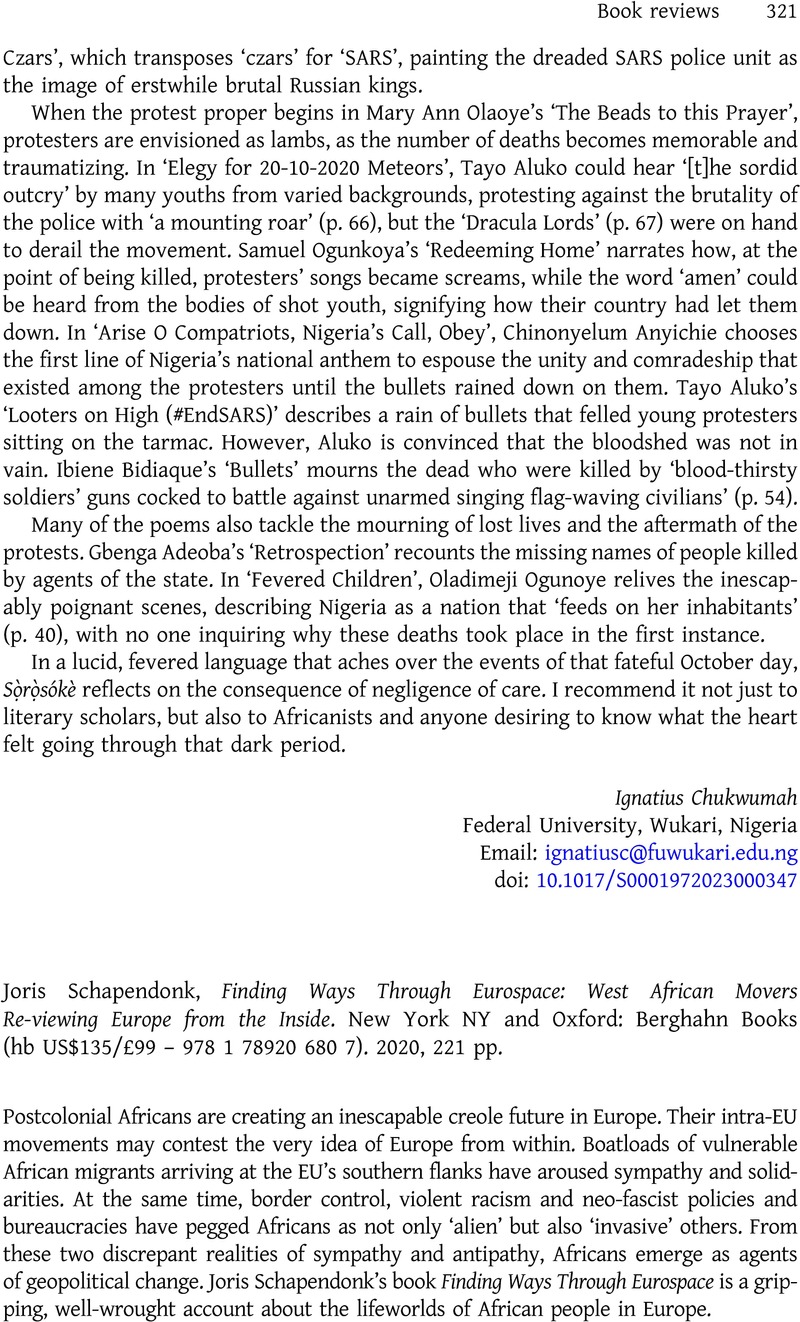No CrossRef data available.
Published online by Cambridge University Press: 04 May 2023

1 A. Favell (2008) Eurostars and Eurocities: free movement and mobility in an integrating Europe. Oxford: Blackwell.
2 P. Gilroy (2019) ‘Agonistic belonging: the banality of good, the “Alt Right” and the need for sympathy’, Open Cultural Studies 3 (1): 1–14; R. W. Gilmore (2022) Abolition Geography: essays towards liberation. London: Verso.